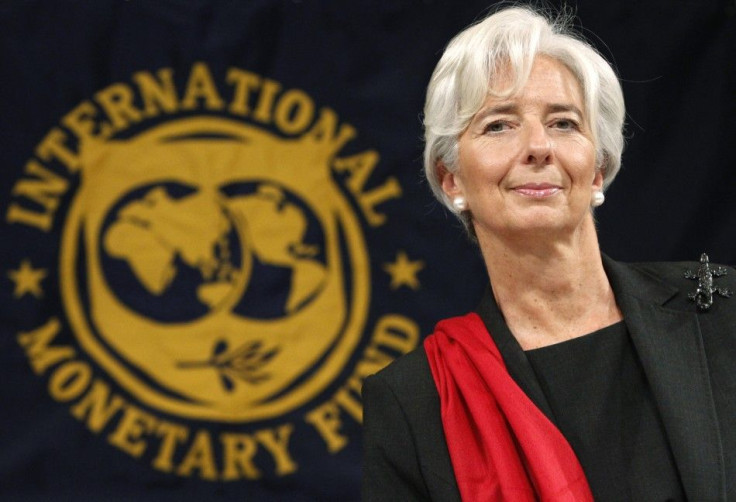Greece Needs More Time To Meet Fiscal Targets, Says IMF Chief

Greece will need two more years for meeting the fiscal targets, according to International Monetary Fund Managing Director Christine Lagarde.
At a news conference in Tokyo Thursday, Legarde stressed the need to offer more time to address the debt problem faced by Greece to return its economy to stability. "This is what we advocated for Portugal, it's what we advocated for Spain, and it's what we're advocating for Greece, where I have said repeatedly that an additional two years was necessary for the country to actually face the fiscal consolidation program that is considered," she said.
Legarde’s comments follow the assurances given by German Chancellor Angela Merkel who visited Athens earlier this week. Merkel said that Greece had already done a lot to restore its competitiveness. Though more is required, she felt confident that the process would be successful.
Greece has already announced the fiscal measures to generate the 13.5 billion euros ($17 billion) of savings demanded by the troika, comprising the European Commission, the European Central Bank and the IMF.
However, though by these cuts the Greek government has moved a step closer to gaining the next loan installment from its bailout package, there is no guarantee yet that Greece will receive the rescue fund. The troika considers the budget too optimistic and says the economy will shrink by as much as 5 percent next year. So there is a chance that the troika will ask additional wages and pension cuts in return for signing off the fiscal package.
There is also a significant anxiety among the market participants that securing the next bailout installment may not signify the end of uncertainty about Greece’s long term future in the euro currency. The worsening in the growth prospect this year means that the economic conditions on which the rescue package was originally founded are now much too positive, resulting in a possible need for more finances in addition to the bailout package.
Notably, the Greek government has raised the public debt to GDP ratio forecast to 179 percent for 2013 which is much higher than the projection of 167 percent made in the initial bailout program. The IMF insists on lending to governments only if the package reduces the public debt of the receiver to a sustainable level.
© Copyright IBTimes 2024. All rights reserved.











